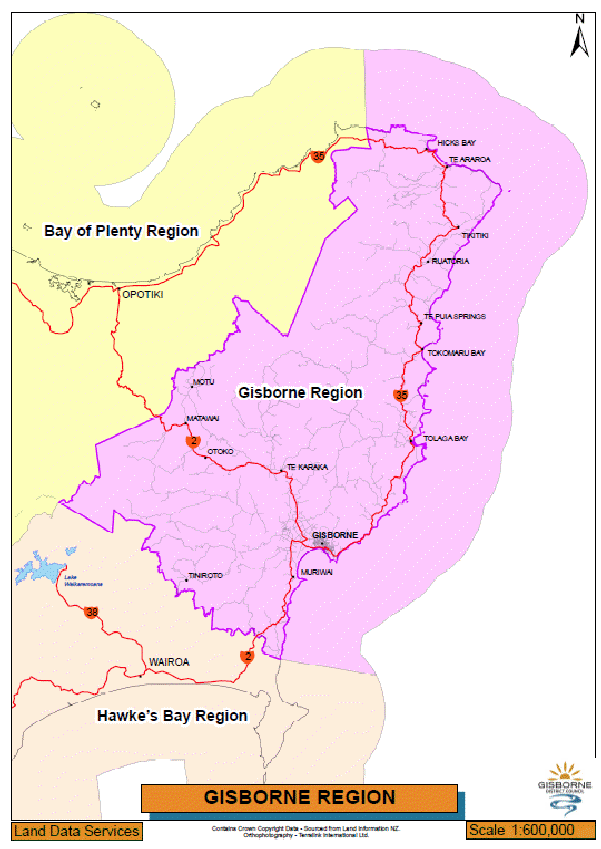Tairāwhiti Easter Sunday Shop Trading Policy
This policy sets out Council's decision to allow shop trading in the Gisborne district on Easter Sunday.
Policy effective 1 April 2025. Made by Gisborne District Council, resolution of Council dated 27 March 2025. Review before 1 April 2030.
This Tairāwhiti Easter Sunday Shop Trading Policy 2025 (Policy) sets out the Council’s decision to develop a policy, on allowing shop trading in the Gisborne district on Easter Sunday. It is made in accordance with Part 2 of the Shop Trading Hours Act 1990 (the Act).
A policy provides councils with the ability to allow shops to open on Easter Sunday in their entire district or any parts of their district.
A policy cannot:
- Control the types of shops that may open, or their opening hours;
- Limit the Council’s ability to undertake its duties, powers or functions under any other Act;
- Apply to the sale and supply of alcohol which is regulated under the Sale and Supply of Alcohol Act 2012;
- Address shop employee rights, which are governed by the requirements of the Act.[1]
The purpose of this policy is to create a consistent approach to shop trading on Easter Sunday in the Gisborne district by permitting all shop owners / operators to open their shops on Easter Sunday if they choose to.
3.1 Tairāwhiti Easter Sunday Shop Trading Policy 2025
3.1.1 Any shop is permitted to open on Easter Sunday throughout the whole of the Gisborne district.
3.1.2 Attached as Schedule One is an indicative map of the Gisborne district which shows the settlements that make up the district.
3.2 Enforcement
Council is not responsible for enforcement of this Policy. Enforcement is undertaken by the central government department that is responsible for the administration of the Act[2].
3.3 Employee and employer choice
3.3.1 Gisborne District Council acknowledges the significance of Easter Sunday to New Zealanders. Nothing in this Policy requires shops to open or employees to work. The Policy does not override shop trading provisions in other legislation such as the sale of alcohol, and we cannot include restrictions on opening hours and cannot require shops to open on Easter Sunday.
3.3.2 The Shop Trading Hours Act (1990) includes provisions that protect an employee’s right to refuse work on Easter Sundays. In accordance with this Act an employee may refuse to work Easter Sunday without providing any reason; and without receiving any repercussions for exercising this right.
3.4 Glossary
Unless the context requires otherwise, the definitions of words or terms used in this Policy that are also used in the Shop Trading Hours Act 1990 are those defined in that Act.
Shop means a building, place, or part of a building or place, where goods are kept, sold, or offered for sale, by retail; and includes an auction mart, and a barrow, stall, or other subdivision of a market; but does not include:
- a private home where the owner or occupier’s effects are being sold (by auction or otherwise); or
- a building or place where the only business carried on is that of selling by auction agricultural products, pastoral products, and livestock, or any of them; or
- a building or place where the only business carried on is that of selling goods to people who are dealers and buy the goods to sell them again.
Goods includes all personal chattels other than alcohol (within the meaning of the Sale and Supply of Alcohol Act (2012), money, and things in action.[3]
3.5 Document management
In accordance with Section 5C (2) of the Shop Trading Hours Amendment Act (2016) this Policy must be reviewed within five years of its adoption. The special consultative procedure must be used to review, revoke, replace or continue this policy without amendment.

[1] Refer to Part 2, subpart 2, 5G – 5L of the Act. For the avoidance of doubt, shop employees have the right to refuse to work on Easter Sunday.
[2] At the time of writing the Ministry responsible is the Ministry of Business, Innovation and Employment.
[3] Examples of ‘things in action’ include debts of all kinds, the benefits of contracts, policies of insurance or assurance, company shares, beneficial interests under wills, and many other property interests.
